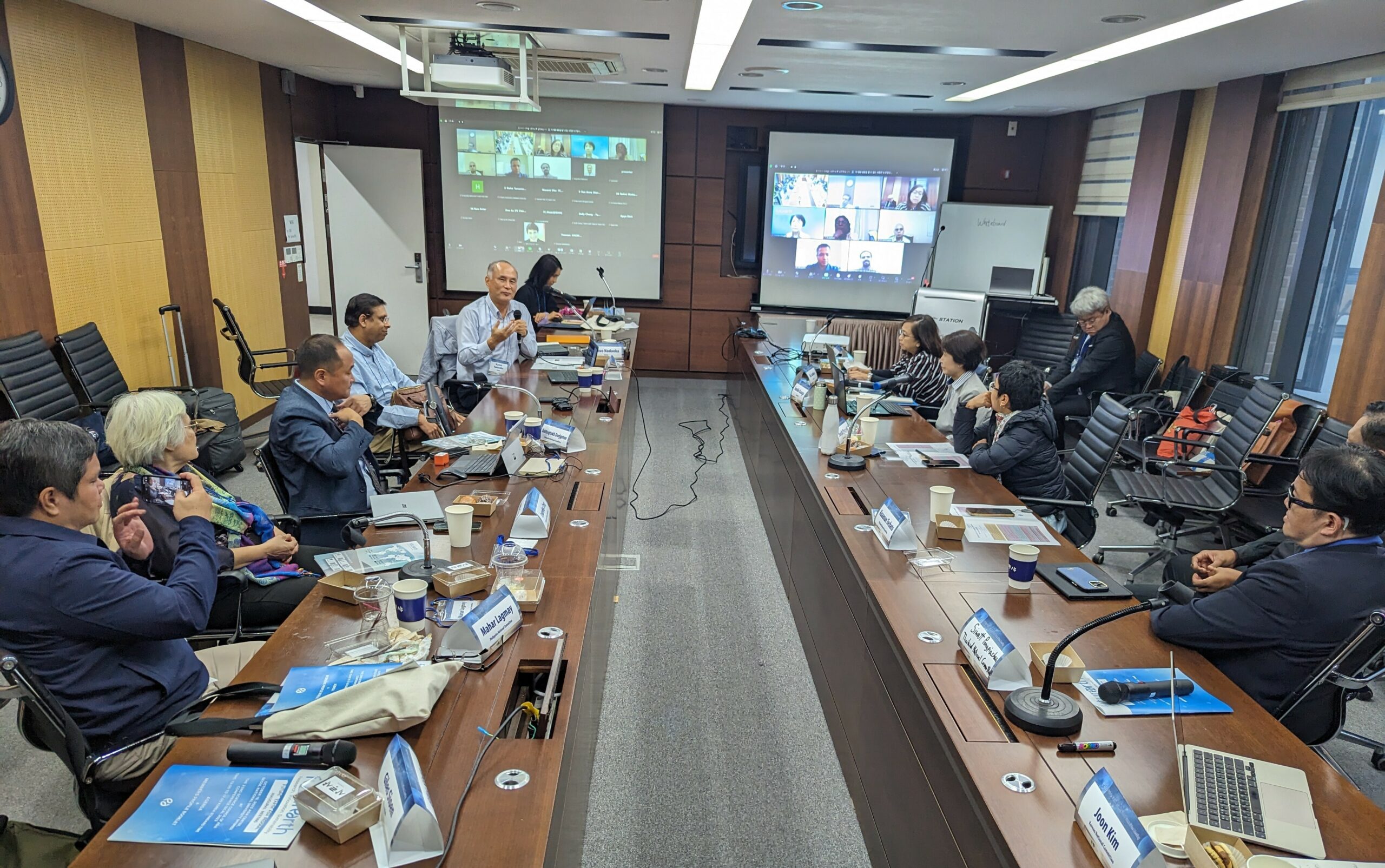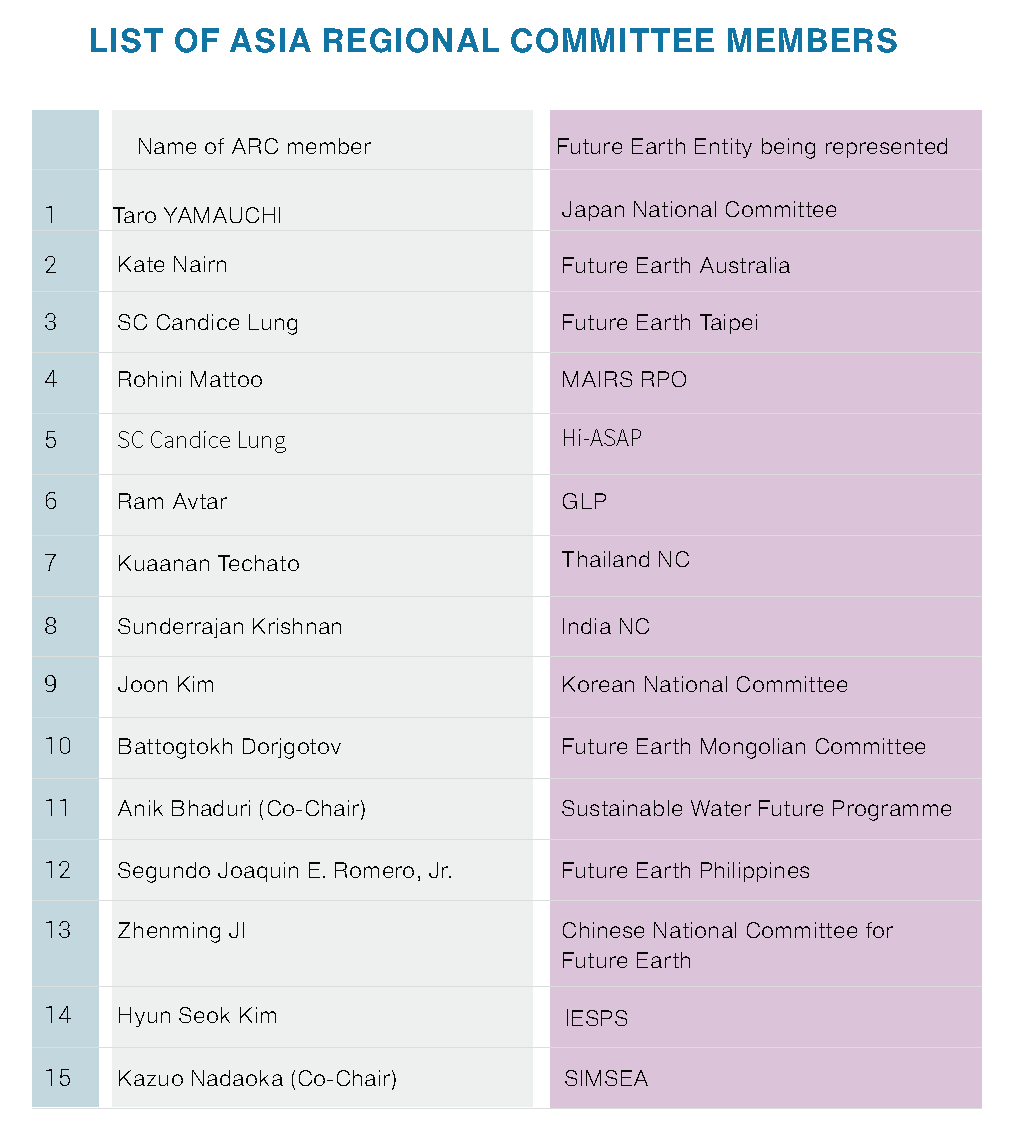Future Earth Asia Committee Launched, Driving Regional Collaboration for Sustainability Initiatives

The Future Earth Asia Regional Committee (ARC) was launched in Seoul, Korea, on 19 October 2023 during a meeting hosted by the Seoul National University. The ARC, composed of Future Earth National and Regional Committees and nodes of the Global Research Networks in the Asia-Pacific region, aims to leverage international collaboration to address interconnected sustainability challenges and drive positive change in the region.
The meeting brought together 34 participants, including 13 official representatives from the ARC member organizations, both onsite and online. Welcoming speeches by Prof. Soonchang Yoon, Chair of Future Earth Korean National Committee, and Prof. Beomshik SHIN, Deputy Director, Asia Center, Seoul National University, set the stage for the discussions that followed.

Acknowledging Pioneers:
Fumiko Kasuga, Future Earth Global Hub Japan Director, expressed gratitude to Dr. Nordin Hasan, former Chair of the Regional Advisory Committee for Future Earth in Asia, and Dr. Hein Mallee, former Director of the Future Earth Asia Center, who played pivotal roles in laying the groundwork for the creation of the ARC. The meeting also introduced the new co-chairs, Dr. Anik Badouri and Dr. Kazuo Nadaoka, who were pre-elected by a vote from the committee members.
Challenges and Opportunities:
During the discussion, attention was drawn to Future Earth-Asia’s rich heritage in systems science, comprehensive assessments, predictive analytics, integrated data handling, and model coupling, positioning it as an ideal platform to deliver the necessary solutions. Challenges such as excessive academic focus, limited engagement with social actors, and funding constraints were also recognized.
Vision and Strategy Discussions:
A consensus emerged that regional integrated action would achieve a more significant impact than individual countries acting alone. The importance of systems thinking and linking evidence-based research with policy was underscored in the pursuit of sustainable futures for the region.
The discussions revolved around setting up a realistic vision for the ARC and developing an action strategy plan to support and promote the effective integration of local, regional, and global communities and operationalize the ARC. To this end, the Co-chairs proposed a draft vision statement for the ARC, and a framework for operationalization, encompassing structure, timeline, key initiatives, and formation of working groups.
Formation of Working Groups (WGs):
The creation of WGs, essential for practical and transdisciplinary solutions, was discussed. The emphasis was on inclusive membership, integration and linkages, connecting different levels of initiatives, and data and knowledge integration. Funding strategies were also discussed, with participants acknowledging that the funding size would determine the scope of WG activities.
Next Steps:
A core group, comprising Dr. Anik Bhaduri, Dr. Kazuo Nadaoka, Dr. Joon Kim, Dr. Mahar Lagmay, Dr. Siwatt Pongpiachan, and Dr. Sunder Krishnan, will collaborate to develop a concept note for seed funding. Additionally, a Webinar Series will be organized to facilitate information exchange among National Committees, starting with Korea and followed by the Philippines, Thailand, Mongolia, and Myanmar.
Looking Ahead:
As the Future Earth Asia Regional Committee takes its first steps, expectations are high for collaborative efforts that will drive positive environmental and societal outcomes in the region. The establishment of the committee signals a collective effort to address complex challenges and work towards a more resilient and ecologically balanced Asia.
DATE
January 2, 2024AUTHOR
Masami OkaSHARE WITH YOUR NETWORK
RELATED POSTS
Early-career Researchers in Asia Learn Transdisciplinarity